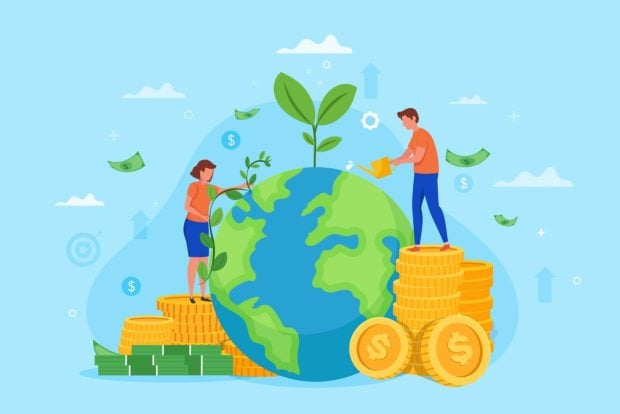Governments are failing to act fast enough on climate adaptation, warns international panel of scientists

Climate change is having widespread impacts on human health, economies and natural ecosystems, but adaptation to changes is not being prioritised, according to the latest warning from international climate scientists.
Written by 270 authors and approved by 195 governments over a two-week meeting, the report by the Intergovernmental Panel on Climate Change (IPCC) collates the latest science on the impacts of climate change, and progress on adapting to these.
The report is much stronger than the previous report on this subject published by the scientists in 2014, which was cautious about the extent to which climate change was affecting human societies. The new report stated that climate change is making extreme heat, heavy rain, drought and fire more intense and frequent, and is driving sea-level rise, ocean acidification and intense tropical cyclones, which are harming and killing people and the natural world.
Upcoming webinar: How to get to net zero: how governments can deliver climate commitments
Agriculture, fisheries, forestry, tourism and labour productivity of outdoor workers are all being affected, reducing short-term economic growth. Extreme weather and associated food insecurity are already driving people from their homes, and worsening conflict in some cases, and diseases are becoming more common and are spreading into new areas, the report added.
The IPCC is clear that time is running out. “Any further delay in concerted global action will miss a brief and rapidly closing window to secure a liveable future,” it said.
The report stressed the opportunities to adapt to climate change, such as by diversifying crops, better managing water resources, and bringing nature into cities to provide shade and soak up excess rainfall.
However, implementation of such measures is so far fragmented and small-scale, and is constrained by a lack of finance, it said, with a widening gap between the money needed for adaptation and the amounts available, particularly to the poorest people.
While global climate finance from both public and private sources has increased in recent years, it is still not enough, and 75% is directed at emissions reduction, rather than improving resilience, it pointed out.
Adaptation finance lacking
At the COP26 conference in Glasgow last November, world leaders made some key commitments on climate change, including to double finance for adaptation to US$40bn by 2025. However, the United Nations Environment Programme estimated developing countries’ needs for adaptation finance at US$300bn a year by 2030, and US$500bn by 2050.
Repairing damage from floods, droughts, fires and storms reduces the availability of financial resources and impedes economic growth, thereby further limiting government finances for adaptation, particularly for developing and least developed countries, the report said.
Read more: Averting climate catastrophe: how can civil servants help deliver COP26 commitments?
Environmental think tank E3G said that it was in governments’ national interest to consider the full range of scenarios and economic, financial, political and security risks stemming from climate change.
Governments are failing to build in more extreme impacts into their assessments and planning, leaving countries unprepared not just for physical impacts, but interconnected cascading effects such as disruption to international supply chains following extreme events, it said.
Taylor Dimsdale, program director for risk and resilience at E3G said: “Policymakers should sit up and pay attention to these findings. There is no doubt now that climate has implications for food and water scarcity, financial stability and conflict and human security. There’s still time to fix the coming global catastrophe but the clock is ticking, and time is running out.”
IPCC chair Hoesung Lee said that adaptation solutions open opportunities for innovation, societies and economies. But he warned that there are limits to how much humans and other species can adapt. “Beyond certain temperatures, adaptation is no longer possible for some species. Our report is a blueprint of future on this planet,” he said.
Like this story? Sign up to Global Government Forum’s email news notifications to receive the latest updates in your inbox.























